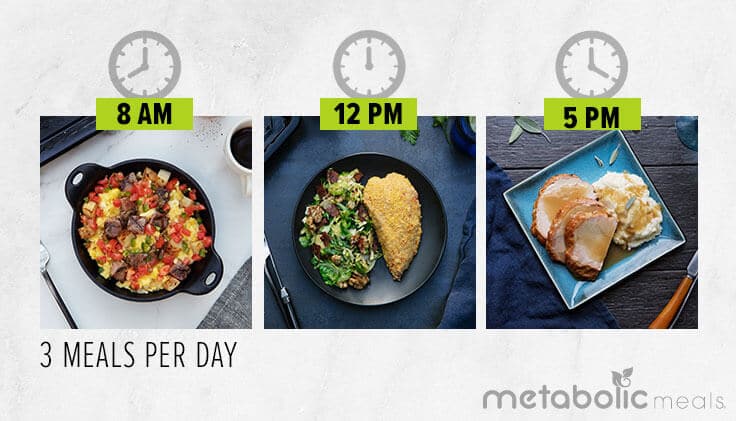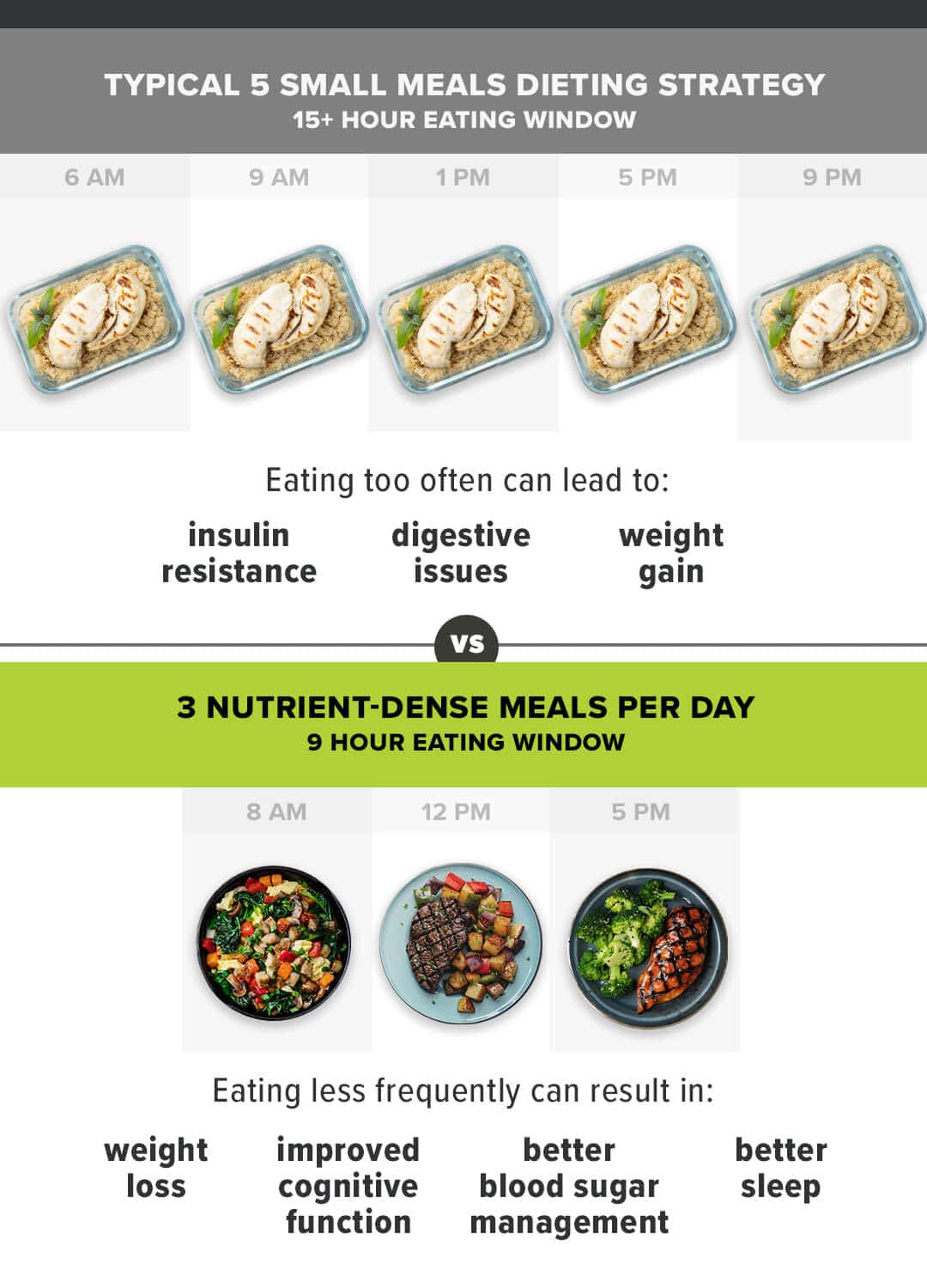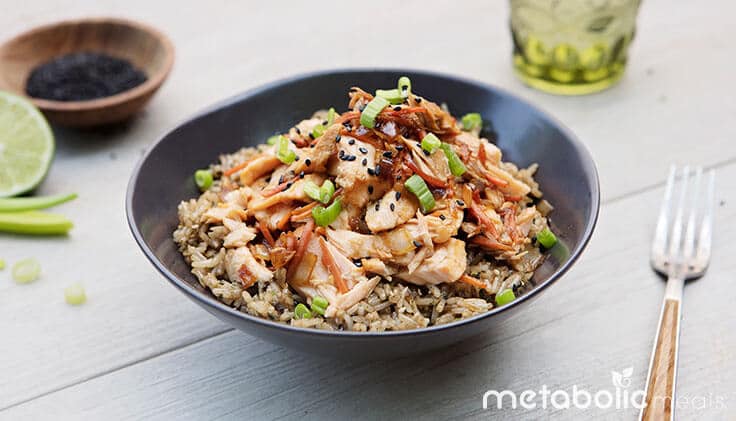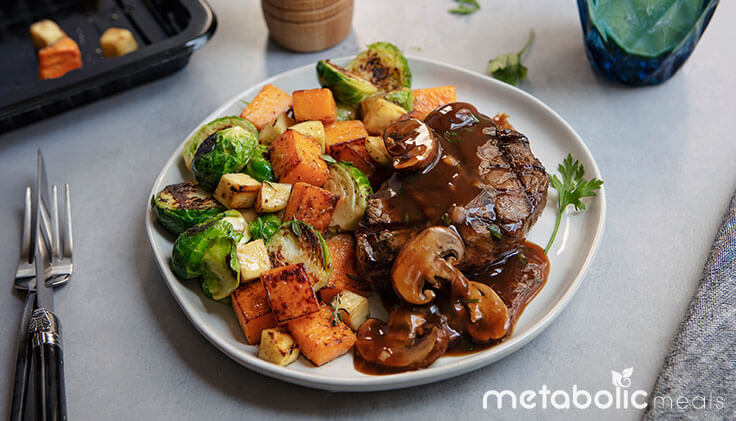ARTICLE AT A GLANCE
The notion that 5-6 meals per day is ideal originated in the bodybuilder and fitness world. Marketers in the snack food industry may have used that information to sell more products to the general population.
For many people, 5-6 meals actually leads to overeating, insulin resistance and an overworked liver.
Outside of bodybuilders and athletes with a large volume of daily physical training, most people will be better off consuming fewer meals within a specific timeframe.
When eating less frequently, the quality of food you choose to fuel your body is essential to ensure you receive well rounded, complete nutrition.
Should you really be eating 5 small meals per day?
Angela Brown, Licensed Physical Therapist and Certified Personal Trainer says, “the frequency of eating meals is very person dependent. I have found that most people actually don’t need to eat that frequently.”
“There are some instances where eating more frequent small meals are beneficial but I typically see most people really need 2-3 meals a day and maybe one snack as needed.”
World renowned nutrition expert, Dr. Eric Serrano agrees that most people would be better off sticking with 3 meals per day. “The liver has a 4-hour clock and when we eat more frequently than this, we break the body’s natural digestive rhythm.”
Serrano recommends eating at 8 am, 12 pm and 5 pm. “This matches our natural circadian rhythm. Eating more often than this makes our liver work harder to create bile and also taxes the pancreas. We just weren’t meant to eat 5, 6, 7 times per day.”

Where did the notion that eating multiple small meals per day come from?
“Eating small frequent meals has been on the rise as a dietary strategy. I think this became a popular trend from the aggressive marketing of snacks and longer waking hours,” says Brown. Strangely enough, marketers in the snack food world may have actually picked this up from a common eating practice used by bodybuilders and others in the fitness world.
Here’s the problem with that practice: as mentioned, bodybuilders are known for training intensely 4-5 times a week for 90+ minutes per training session. These athletes eat multiple times per day to increase protein synthesis, replace glycogen and drive down the catabolic hormone cortisol. Additionally, most bodybuilders have considerably more muscle mass than the average person which results a higher daily calorie expenditure, even at rest. When a person with less muscle and activity attempts this approach, they often overeat on a daily basis.
Why would many people be better off with 2-3 meals per day?
Satchin Panda, professor at the Salk Institute believes that people improve their metabolic health by eating within a daily 8-10 hour window. Dr. Panda has found in his research that most people actually graze over a 15 hour or longer window each day.
“The gut has a clock that regulates the daily flow of enzymes, the absorption of nutrients and the removal of waste. These daily rhythms are so ingrained that they are programmed in our DNA,” said Panda. Eating too frequently can disrupt this rhythm leading to insulin resistance, digestive issues and weight gain.

Chef-crafted meals optimized for health benefits.
Research is finding that people who eat 3 meals within an 8-10 hour window metabolize fatty acids more efficiently, improve insulin sensitivity and may also clear away damaged cells.
Translation: more efficient fat burning, better immune function and quite possibly a slowing of the aging process.
Who would benefit from 5 meals per day?
As mentioned, hard training athletes have very different energy requirements as do people with large amounts of muscle mass. More calories on a daily basis will be needed by these people to maintain muscle mass, hormone optimization and immune function which can suffer when overtraining and under eating is at play.
Also, people who have been in a calorie deficit for 3-4 days in a row can benefit from occasional days where they eat more food and more often. Brown says, “when your thyroid is sluggish, this is a scenario where someone can use more frequent meals. The thyroid requires a lot of nourishment and at times does better eating more often.”
When eating less frequently, it’s important to make the meals count.
“In order to fulfill your nutrient requirements and be satiated when you are eating less frequently, food quality is super important,” say Brown. Your body looks at nutrients as information and once you address timing, the next step is quality.
Proteins are needed for brain health, rebuilding the immune system and detoxification. When choosing protein sources, make sure and opt for grass-fed, pasture-raised and wild-caught versions as they have a superior omega 3:6 ratio which helps lower inflammation. Antioxidant rich vegetables and fruits contain valuable phytonutrients, fiber and prebiotics that help maintain a healthy gut. Other benefits include: more energy, stronger bones and an improved estrogen metabolism.

Wild-Caught Salmon Sushi Bowl: 22g high-quality protein
Healthy fats can actually help you lose more fat by improving metabolic rate, balancing hormones and reducing cravings. Try to improve the ratio of Omega 3:6:9 by consuming unrefined animal fats, avocados, olive oil, nuts and seeds.

Grilled Grass-Fed Top Steak with Mushroom Sauce and Honey Mustard Vegetable Medley: Omega 3s from grass-fed beef
Carbohydrates are the X factor for many people. We recommend experimenting with the amount and type of carbs you eat to help you feel and operate your best. Good options include organic jasmine rice, quinoa, chickpeas, beans, sweet potatoes, pumpkin and thin-skinned fruits like berries. If you feel sluggish after a meal higher in carbs, try reducing the amount per meal by 25% and adjust accordingly.

Kung Pao Chicken with Jasmine Rice: Clean, organic source of carbohydrates






